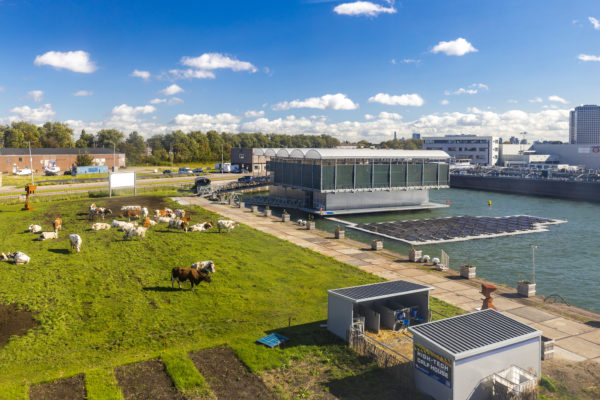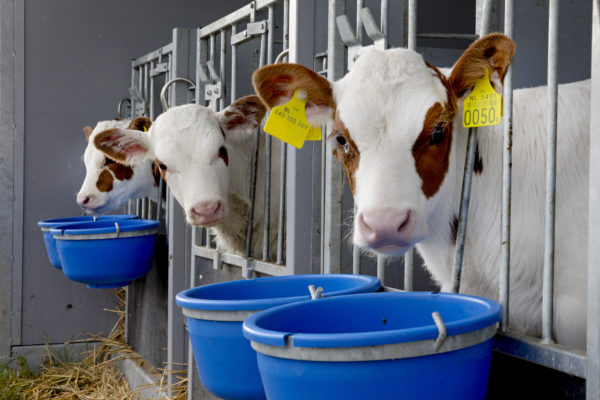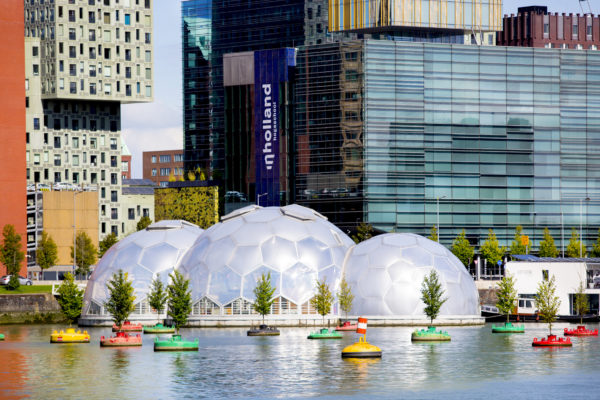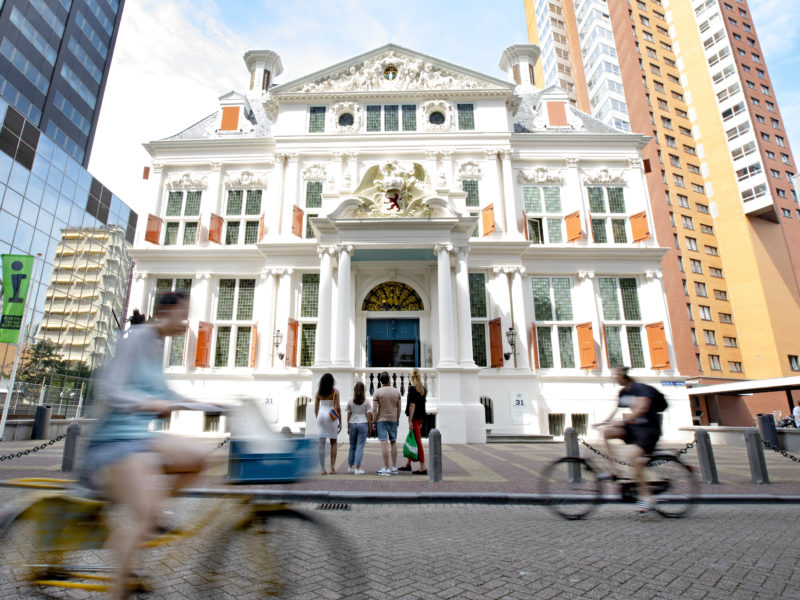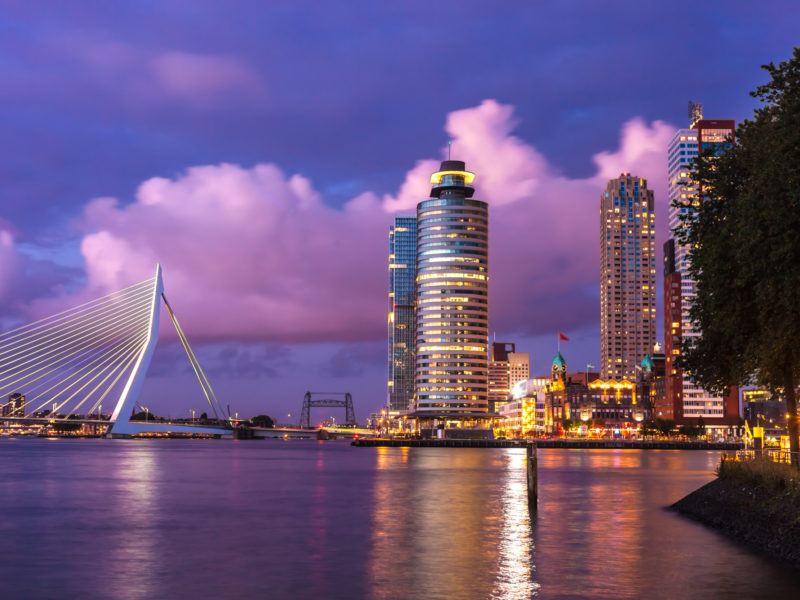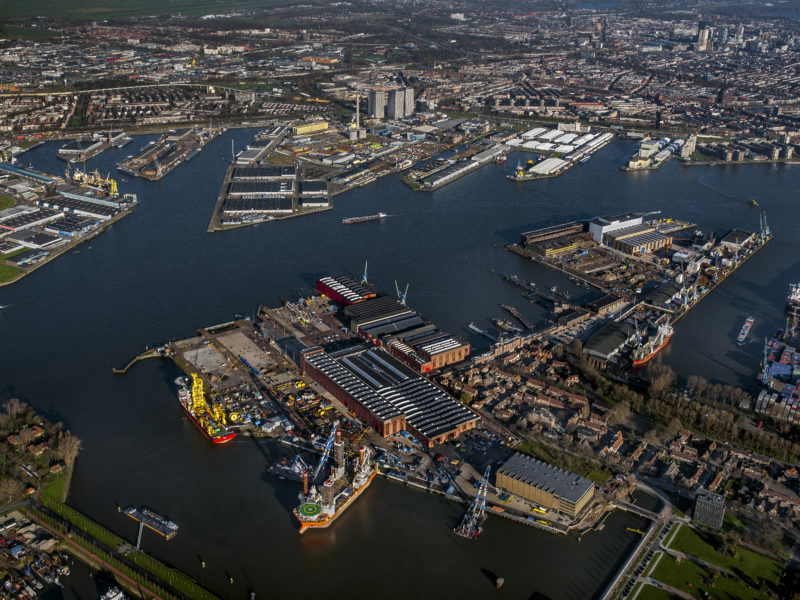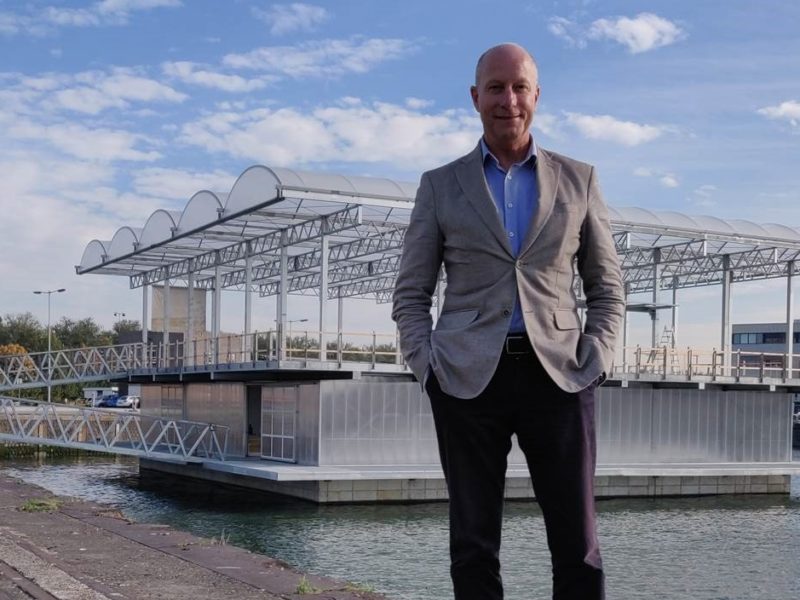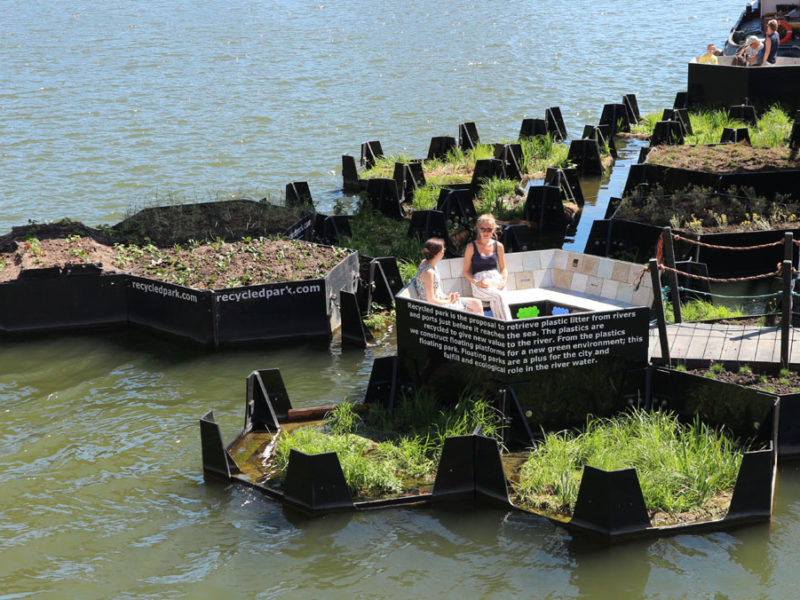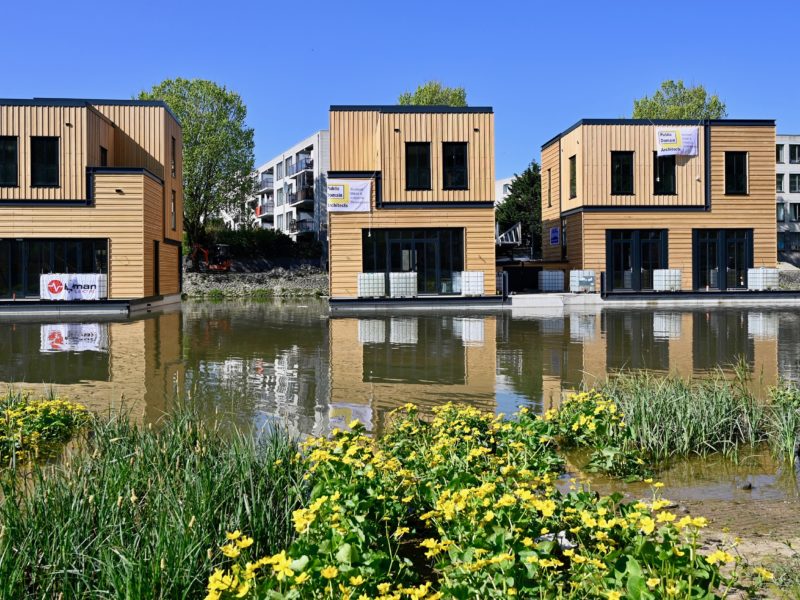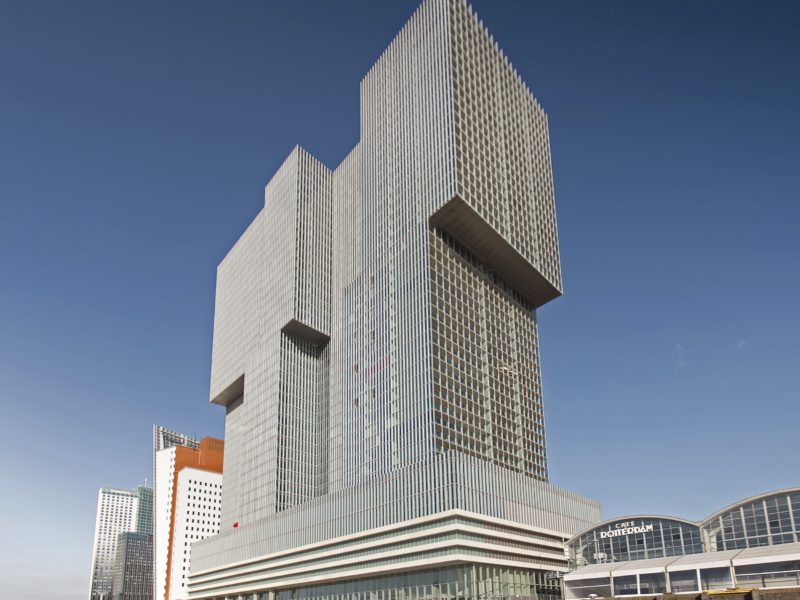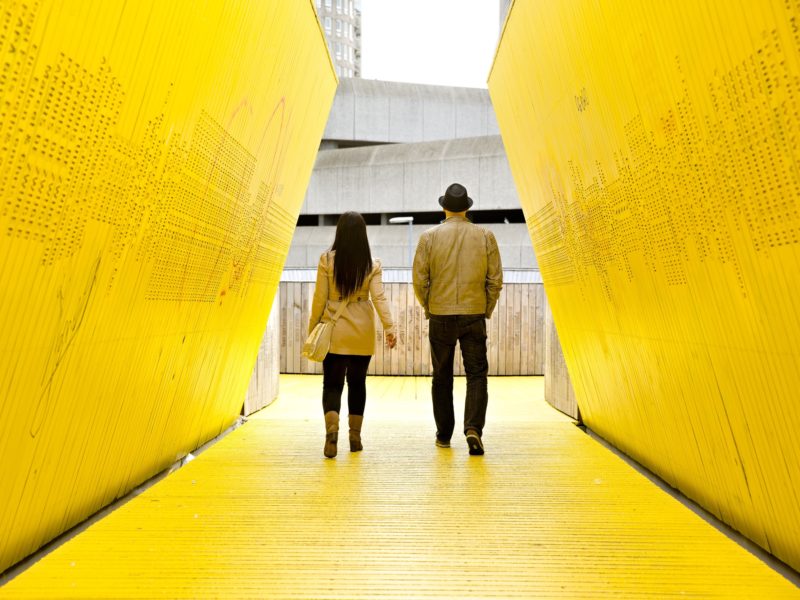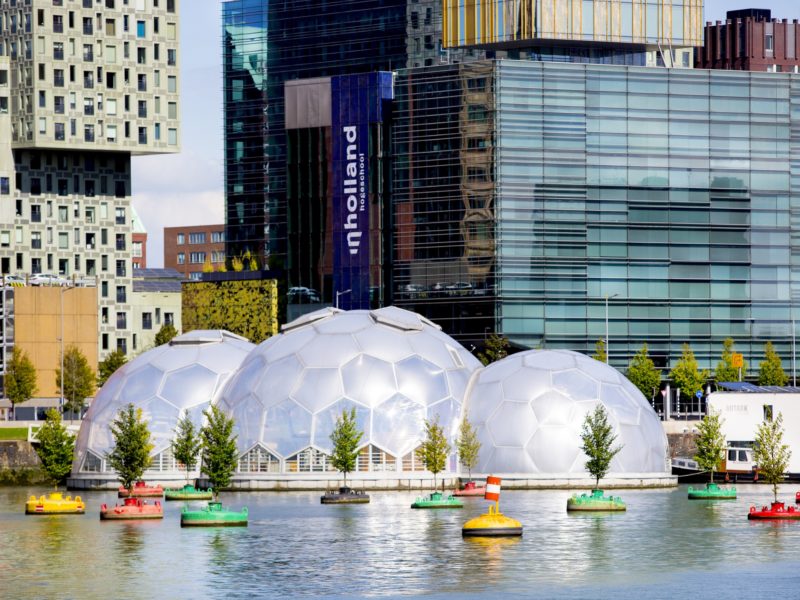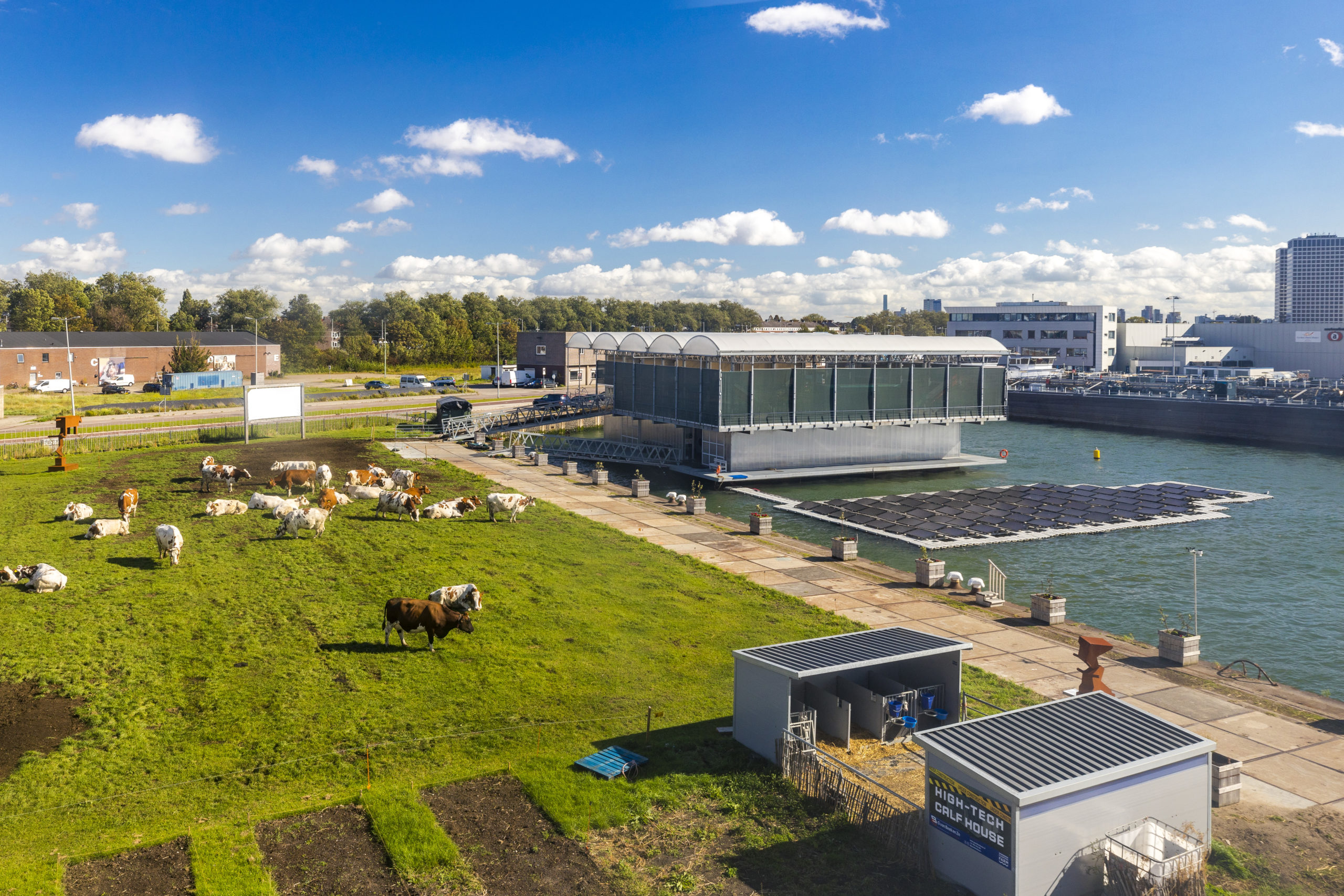
Rotterdam. Home port for innovative floating solutions.
Showcase
The world’s rapidly growing population, climate change, rising sea levels, land scarcity, the continuing search for practical, sustainable solutions to economic challenges and the simple yet strong human drive to innovate… these are all contributing factors why people are looking more and more towards the water for things we’d normally do on land. Living, working, building, farming, producing and harvesting energy, it’s all possible on water. Rotterdam is a living lab for all kinds of innovation, and an important hub for the design, development, testing and implementation of floating solutions.
In October 2020 the World Conference on Floating Solutions ‘Paving the Waves’ was supposed to take place in Rotterdam, with experts from all over the world coming together and sharing knowledge on floating developments and solutions, such as construction and housing. However, the Covid-19 pandemic threw a big spanner in the works and, as almost congresses and events do in these times, Paving the Waves went digital. But the fact that the organising committee had chosen Rotterdam to be the host for this important event, was no coincidence. The city, its port and in fact the whole delta area are true advocates for innovations in and on the water.
Dutch expertise
It’s only logical for Rotterdam to always have at least one eye fixed on the water. Rotterdam is located on the Rhine-Muese-Scheldt delta and close to the North Sea. It is per definition vulnerable to rising sea levels that are a result of climate change, and the larger part of the city actually lies below sea level. The Oosterscheldekering, located between the islands Schouwen-Duiveland and Noord-Beveland is the largest of a series of thirteen dams and storm surge barriers, designed to protect the Netherlands from flooding from the North Sea. These socalled Delta Works, constructed after the North Sea flood of 1953 are a result of the Deltaplan. Today, these marvels of engineering and construction still are an important showcase of the Dutch expertise in water management, attracting attention from all over the world.
DNA shaped for innovation
Not only its geographic location drive the Rotterdammers to occupy themselves with their watery environment. Creation and innovation are part of the Rotterdam DNA. Full of energy and with an urge for innovation, Rotterdam reinvented itself after the bombing in WWII. Rotterdam made a clean break with the past and preferred modern architecture: light, air and space. It was a ground breaking idea for its time and it transformed Rotterdam into the thriving metropolis it is today. It would be too much to say the current innovative drive and spirit of the Rotterdammers originated at this moment in time; the city and its people had always been known for their ‘getting down to business’ inclination. “Less talk, more action” (Dutch ‘niet lullen, maar poetsen’) is a local saying denoting Rotterdammers and their mentality.
Today’s Rotterdam is a proud, dynamic and internationally oriented city. It is the ‘gateway to Europe’ with a smart port (Europe’s largest), thriving industrial clusters and a very active innovation ecosystem. A city with near perfect connectivity, both physical and digital, making it an important international business and logistics hub. With internationally acclaimed knowledge institutions, a thriving international business community, high-quality culture and architecture and a rich diversity of people, Rotterdam is a city where the old and the new economy naturally go hand in hand, and where industry crossovers and innovations arise organically.
Eyes of the world on Rotterdam
All these factors taken into account it’s no wonder that, in a time when people find themselves confronted with major global challenges like climate change adaptation, energy transition, land and food scarcity, the eyes of the world turn towards Rotterdam. And when they do, what do they see? A myriad of exciting developments in and around the water, including various floating solutions, such as a floating dairy farm, Europe’s largest sun-tracking floating solar power park, sustainable floating homes, a bobbing forest and soon also the brand new, state-of-the-art floating office for the Global Centre on Adaptation (GCA).
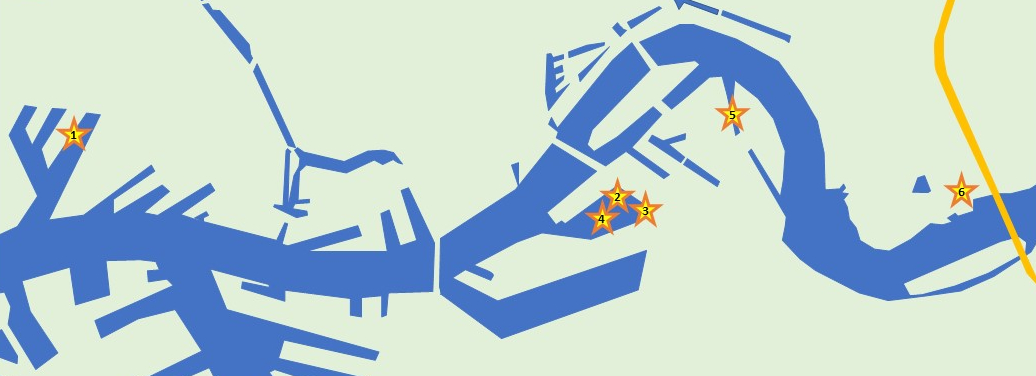
Illustration: map depicting the locations of innovative floating solutions in Rotterdam. © 2020 Rotterdam Partners
World’s first floating dairy farm (1)
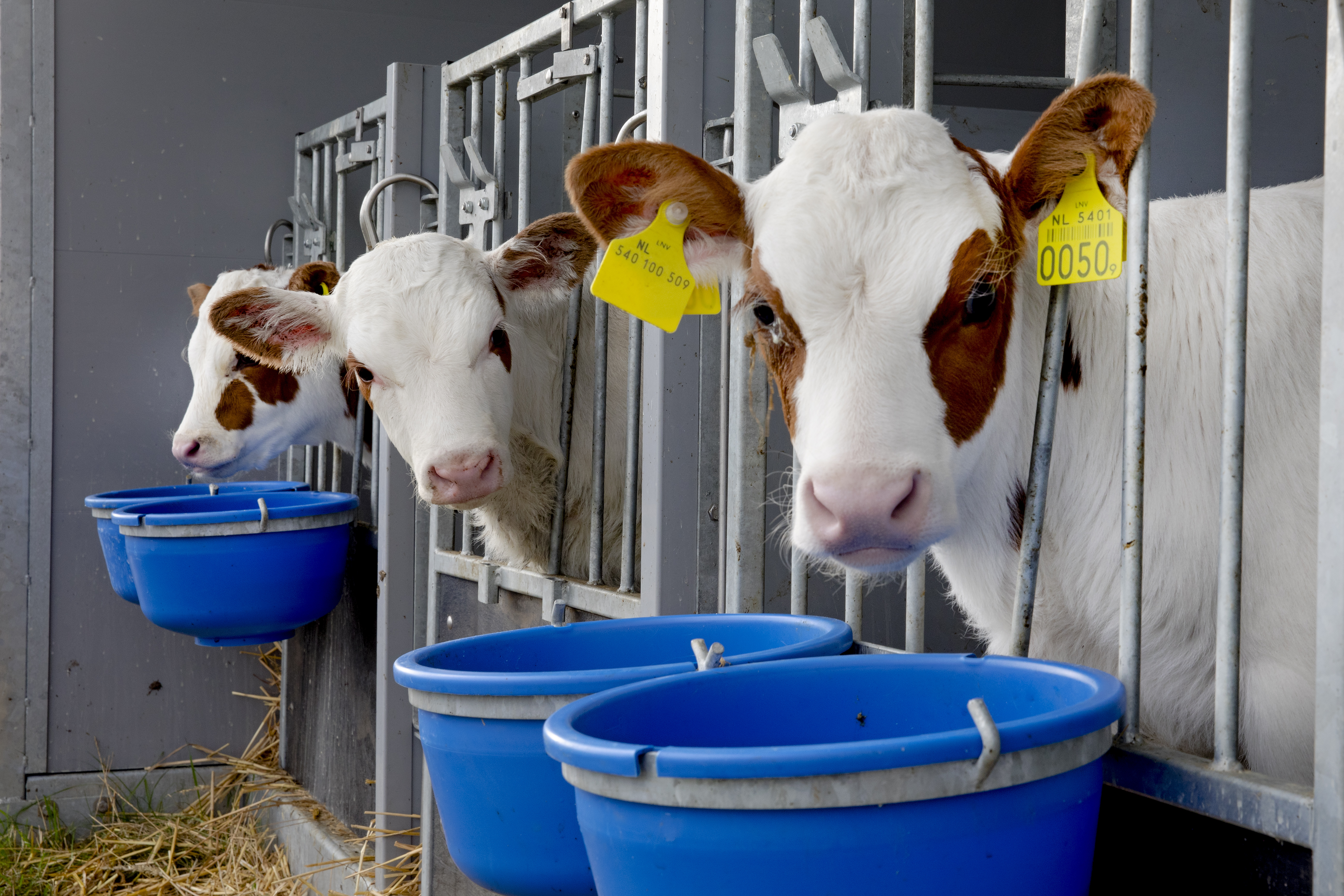
Since May 2019 when it first opened, Rotterdam is home to the world’s first floating dairy farm, where fresh dairy products are produced in a sustainable, circular and animal-friendly way every day. The Floating Farm aims to showcase a new way of bringing farming back into the city with minimal impact on resources and the environment.
Bobbing Forest (2)
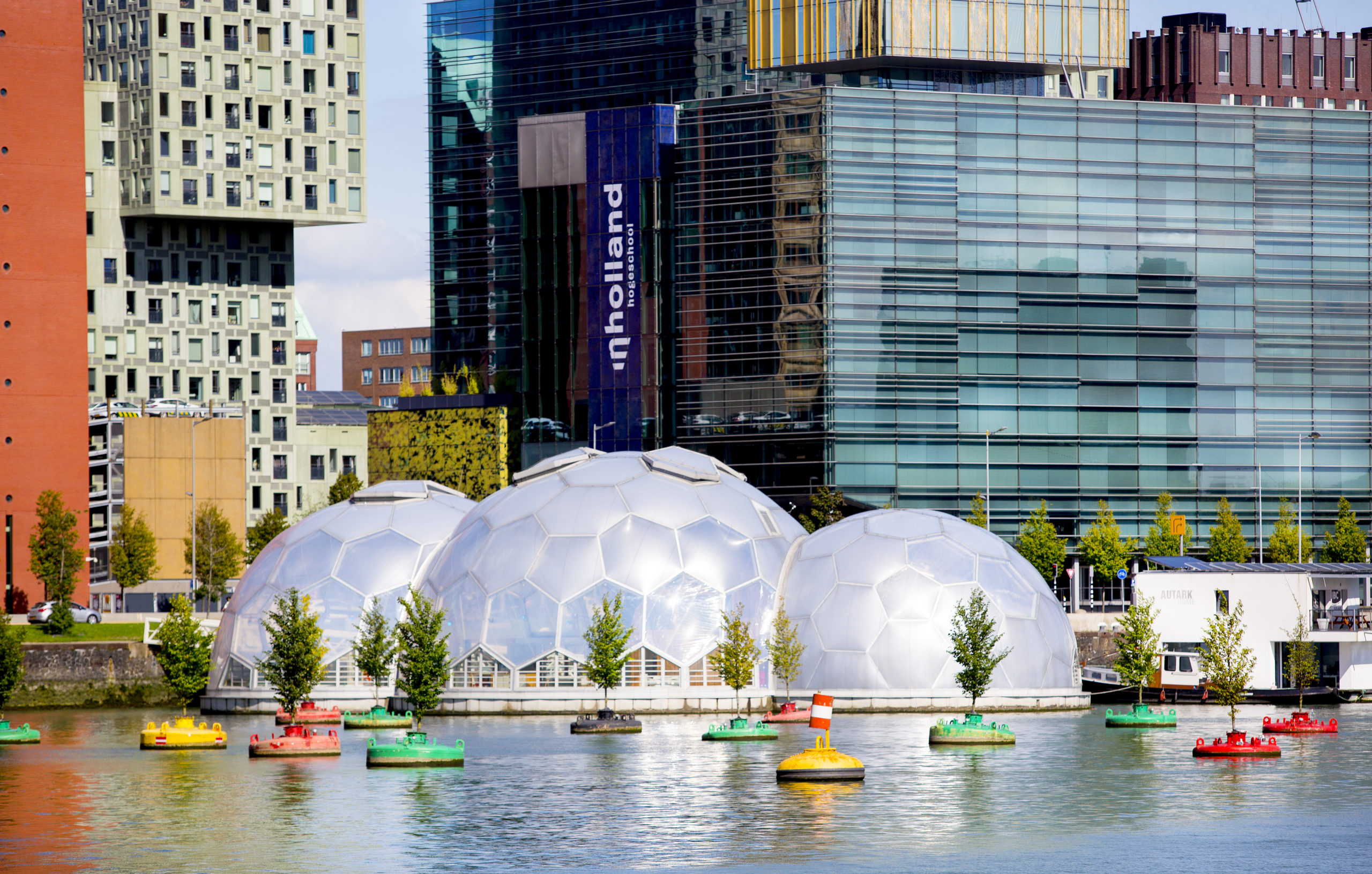
The Bobbing Forest in the Rijnhaven by Jeroen Everaert (Mothership) is based on the artwork ‘In Search of Habitus’ by artist Jorge Bakker. This installation consists of a water-filled tank and floating buoys with actual living trees. While these trees are loosely bobbing on the water, they raise questions on the relationship between city dwellers and nature and how these two relate to each other and the world surrounding them.
Recycled Park (3)
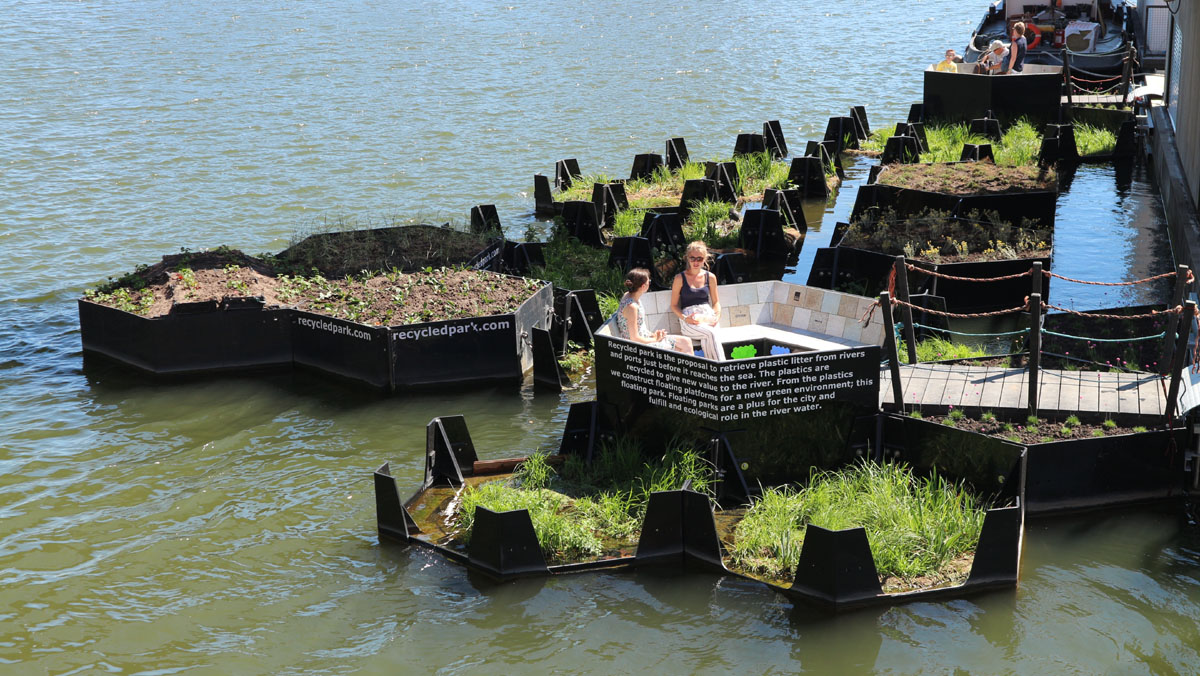
Right next door to the Bobbing Forest is a small floating park, designed and constructed by CLEAR RIVERS. The first phase of the Recycled Park (app. 140m2) was officially opened in July of 2018. This remarkable floating green area is the result of a project based around collecting plastic waste from the river and the quays. From these waste materials reusable plastics are separated and recycled into building blocks which are the base material for a floating park.
Floating Office Rotterdam (4)
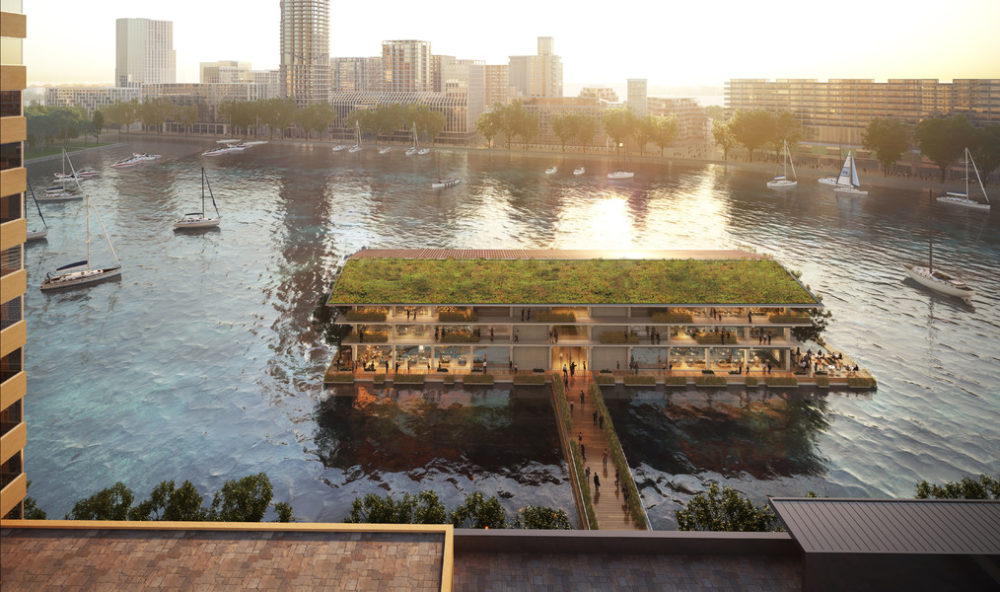
The Global Centre on Adaptation (GCA) will be moving its new HQ into the Floating Office Rotterdam (FOR). The municipality of Rotterdam and real estate developer RED Company revealed the design of this brand new office at the beginning of 2020. The unique design by Powerhouse Company provides a sustainable and completely energy neutral floating office, built out of wood. GCA’s office will represent Rotterdam’s vision of a future sustainable city. Rotterdam is honoured to host the GCA’s headquarter and its mission: enabling countries and cities to become climate resilient globally. Construction is under way, a completion date has yet to be announced.
Sustainable floating homes (5)
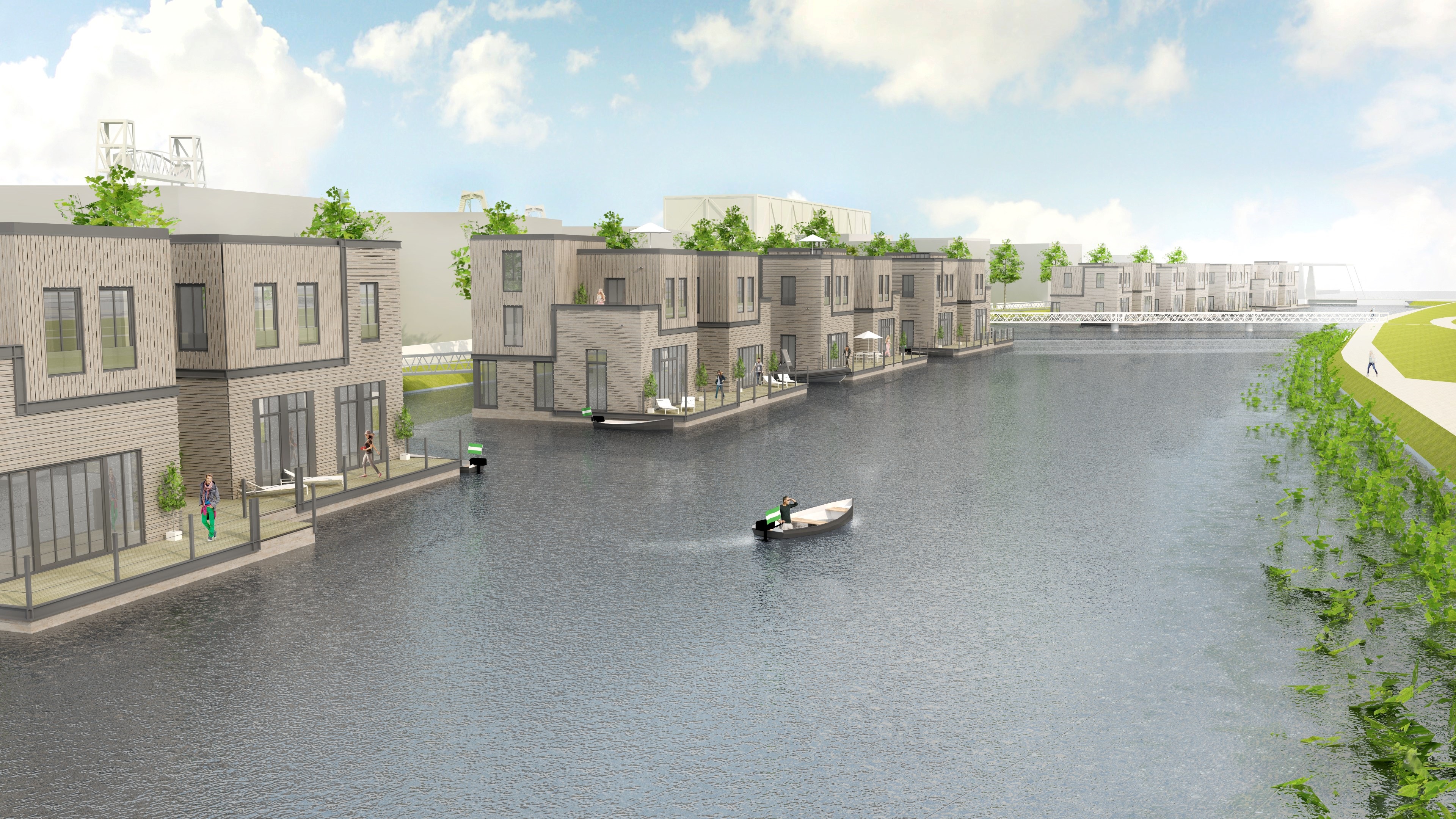
The Nassauhaven has evolved from an unused harbour basin into a quarter with floating homes and eco-friendly shores. The first twelve floating homes (Dutch: ‘Havenlofts’) in Rotterdam arrived here recently. Because the city of Rotterdam is growing, many new homes will be needed over the coming years and the water offers plenty of space. To gain experience with building on water, the municipality started looking for a developer of sustainable floating homes. The Havenlofts in the Nassauhaven are the result of this. Rotterdam hopes to accommodate even more floating houses in the future.
Europe’s largest sun-tracking floating solar power park (6)
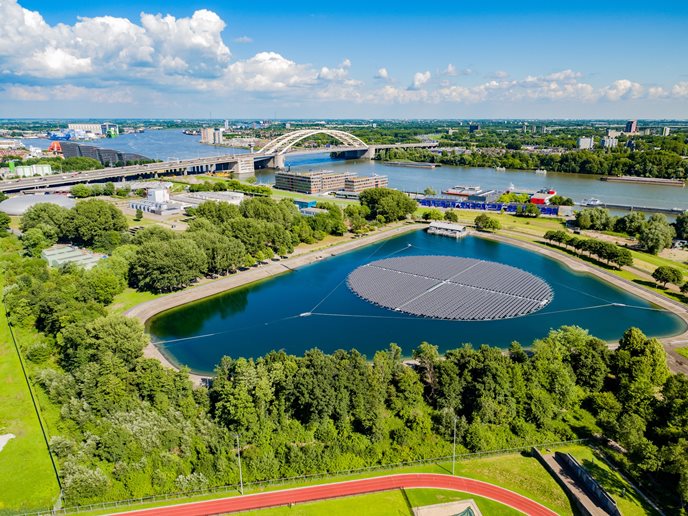
Evides Waterbedrijf opened Europe’s largest sun-tracking and floating solar park on the reservoir of production location Kralingen in the summer of 2020. It’s a new, innovative step towards making the production of Evides’ drinking water energy neutral. The installation follows the sun with special sensors, so it can effectively use as much solar power as possible. The size of the solar park is unique in Europe. At Kralingen, Evides works with Floating Solar, which supplied and manages the solar park. Evides buys the green electricity that is produced. The 4,787 panels have an annual yield of more than 2 million kWh of sustainable energy. That is equivalent to the average energy use of 650 households per year.
Innovations from Rotterdam, shared with the world
These are just some exciting examples of how the city and port of Rotterdam and many partners in and around the city are developing innovative solutions to important, modern day challenges, incorporating their watery environment. Working with, rather than against water has been, is and always be an intrinsic motivation and urgent driver for innovations that are imagined, planned, developed and implemented in Rotterdam and then shared with the world.

Rotterdam Partners
